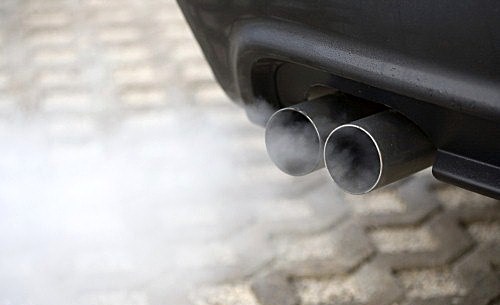Human-derived sources of air pollution are diverse and include industry, commercial operations and daily activities you and I engage.
Using fossil fuels not only releases carbon dioxide, methane and other greenhouse gases into the atmosphere but, locally, it produces air contaminants such as nitrogen oxides and particulate matter. These contribute to the formation of “smog” that can affect both ecological and human health.
On hot, sunny days, nitrogen oxides can react with other pollutants to form ground-level ozone and/or fine particulate matter. (Fine particulates result from the burning of fossil fuels and wood, from dust off (un)paved roads and from construction sources. The smaller the particulate, the more harmful it is to health.) Poor air quality combined with extreme heat can have an even greater impact on human health.
Last summer, the Canadian Medical Association Journal featured an article on air pollution, “Adopting global guidelines for air pollution: protecting the health of Canadians.” In 2014, the World Health Organization named air pollution the world’s single largest environmental health risk. In 2008, it was estimated that more than 20,000 premature deaths related to outdoor air pollution occur each year in Canada.
In the Lower Mainland, Metro Vancouver is mandated to monitor our region’s air quality. Its online Airmap resource displays the air quality at each of the 28 monitoring stations, located from Horseshoe Bay to Hope (gis.metrovancouver.org/airmap).
While it’s important to lead a healthy and active lifestyle, it’s also beneficial to know how to reduce your exposure to air pollution, especially during the smog season, April to September. The Air Quality Health Index, along with the weather forecast, can help identify the best time to enjoy outdoor activities (www.airhealthcheck.ca).
People who should take extra care on days with degraded air quality include anyone with asthma or heart, lung or other chronic disease, infants and children, pregnant women and seniors. In other words, a large portion of our population can be directly or indirectly affected by the negative health impacts of air pollution.
Metro Vancouver’s 2016 Caring for the Air report contains updates and lots of practical information on how individuals, communities and businesses can work together to improve our air quality. Here are some things you and I can do to improve our local air quality:
• Avoid idling: Although many drivers are learning to pull over before using their mobile devices, many continue to keep their engines running. This creates unnecessary air pollution.
• Use energy wisely at home: Heating and cooling our homes contribute some 15% of greenhouse gas emissions in our region. Metro’s 2016 report outlines efficient options to consider. BC Hydro’s website and Natural Resources Canada also provide helpful information.
• Practice “no trace” camping: Last summer saw the third largest area burned in B.C. since 2004, with several large fires occurring close to Metro Van (north of Squamish and Pemberton), causing a 20-fold increase in local particulate matter levels. Making a (camp)fire should be reserved for survival — i.e., emergencies — only.
• Be a considerate smoker: Apart from the enormous amount of litter cigarette butts create, second-hand smoke is not just a nuisance but also a serious health hazard.
• Avoid perfumes: … and other petro-chemically fragranced skincare/household products. Back in January, I wrote about the potential health hazards of many products we use daily on our bodies, clothes and in our households.
Melissa Chaun of Port Moody is an ecologist with a passion for all things sustainable. She is events co-ordinator with the Rivershed Society of BC, volunteers on various city committees and co-ordinates the monthly meetings for Tri-City Greendrinks. Her column runs monthly.



